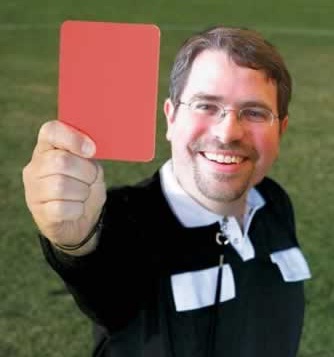For years there were rumors that if you over-optimized your site that perhaps Google would penalize you. So far, these have only been rumors and never confirmed. However, now Google has officially announced that they are in development of a secret algorithm that will hurt sites that over-optimize themselves on specific keywords.
According to Matt Cutts, from Google:
What about the people optimizing really hard and doing a lot of SEO. We don’t normally pre-announce changes but there is something we are working in the last few months and hope to release it in the next months or few weeks. We are trying to level the playing field a bit. All those people doing, for lack of a better word, over optimization or overly SEO – versus those making great content and great site. We are trying to make GoogleBot smarter, make our relevance better, and we are also looking for those who abuse it, like too many keywords on a page, or exchange way too many links or go well beyond what you normally expect. We have several engineers on my team working on this right now.
What exactly is over-optimization? While there are some theories around the net, Practical Ecommerce Claims that these are the 5 signals that someone is over optimizing:
- Linking to a page from that same page with optimized anchor text. If the page is www.jillsfakesite.com/flannel-shirts, and in the body copy of that page I link the words “flannel shirts” to the same page the words are on, IE www.jillsfakesite.com/flannel-shirts, that should count as over-optimization.
- Linking repeatedly from body copy to a handful of key pages with optimized anchor text. If 33 of my 100 pages link to www.jillsfakesite.com from the body copy with the anchor text “Jills Fake Site,” that should count as over-optimization.
- Changing the “Home” anchor text to your most valuable keyword. Usually the home link is the site’s logo. But in the cases where the home link is textual and has been optimized with the juiciest keyword, that should count as over-optimization.
- Overly consistent and highly optimized anchor text on backlinks. If 10 of the 100 links to a page contain the same highly optimized anchor text, such as “Jill’s Fake Site, the Fakest Site Selling Flannel Shirts on the Web,” that should count as over-optimization.
- Generic keyword domain name. They have way too much impact on rankings, and need to be demoted in importance. Now I’m sure it’s difficult to determine which words are generic and which are brands. But Google seems to have cracked that nut at least partially with its related brands results. Surely they must be close to understanding the difference between the non-branded domain littleblackdress.com and the brand whitehouseblackmarket.com.
What is basically being pointed out that is that proper SEO actually levels the playing field between you and everyone else because now you can stand by the quality of your site, not by the search engine’s ability to figure it out. Because, sure, the search engines are getting better at understanding new technologies and “seeing” what is on your Web site – but would you really leave the success of your site and your business in their hands. No, you’re going to do everything in your power to make sure it’s as crawlable and easy to navigate as you can. That’s SEO. It’s also good business.




